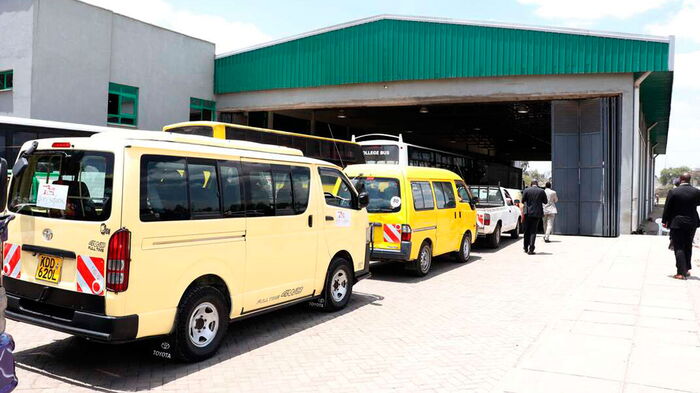The government has unveiled tough new road safety proposals that will bring back alcoblow tests, enforce compulsory vehicle inspections, and impose strict standards on school and commercial transport.
Transport Cabinet Secretary Davis Chirchir has published four sets of draft rules that will overhaul Kenya’s traffic framework.
The rules, which are open for public comment for 14 days from June 18, are contained in the Traffic (Drink Driving) Rules 2025, the Traffic (Motor Vehicle Inspection) Rules 2025, the Traffic (School Transport) Rules 2025, and the Operation of Commercial Service Vehicles Rules 2025.
“This is therefore, to request the public and all persons likely to be affected by the proposed rules and regulations to submit written memoranda to reach the undersigned within 14 days from the date of publication of this notice,” Chirchir said in the Gazette notice.
The proposed drink-driving regulations seek to introduce legally defined alcohol limits for drivers, replacing the current system where enforcement is based on officers’ discretion.
The government wants to reinstate alcohol testing using certified breathalysers, blood, and urine samples, a move that will mark the formal return of alcoblow.
Drivers found operating vehicles while exceeding the set limits will face penalties, with the rules also outlining consequences for those who refuse to be tested.
Under the Traffic (Motor Vehicle Inspection) Rules 2025, all vehicles older than four years will be required to undergo annual inspections. This will also apply to commercial, school, and public service vehicles, with inspections also required after accidents, before registration, or during changes in ownership details.
Although the inspection fee is not stated in the draft, vehicle owners currently pay Sh1,000 for the service. The rules also propose licensing private testing centres, regulating inspectors, and issuing official inspection stickers as proof of compliance.
The draft also seeks to address the issue of unroadworthy vehicles by introducing checks for salvage vehicles and tightening oversight on inspection processes.
The Traffic (School Transport) Rules 2025 will establish a detailed framework for managing school vehicles. They propose mandatory safety equipment such as seat belts, fire extinguishers, and telematics systems, while also setting qualifications and conduct guidelines for school drivers, attendants, and crossing guards.
“The safety of school-going children is non-negotiable. This framework ensures that school transport is not only reliable but meets the highest safety standards,” said Chirchir.
The rules will also ban the use of school buses for private purposes unless a temporary licence is obtained.
The fourth regulation, the Operation of Commercial Service Vehicles Rules 2025, will introduce licensing requirements for commercial vehicle owners and operators. The rules will enforce safety standards including use of speed governors, telematics, and underride protection equipment.
Chirchir said, “We are moving toward a transport ecosystem that values professionalism, accountability, and safety,” while explaining that the new rules aim to plug major safety gaps in the current system.
Commercial drivers will also be required to undergo safety training and work within set hours to reduce fatigue-related accidents.
According to the ministry, the proposals are grounded in the Traffic Act and the NTSA Act and aim to modernise transport regulation and improve safety on Kenyan roads.
